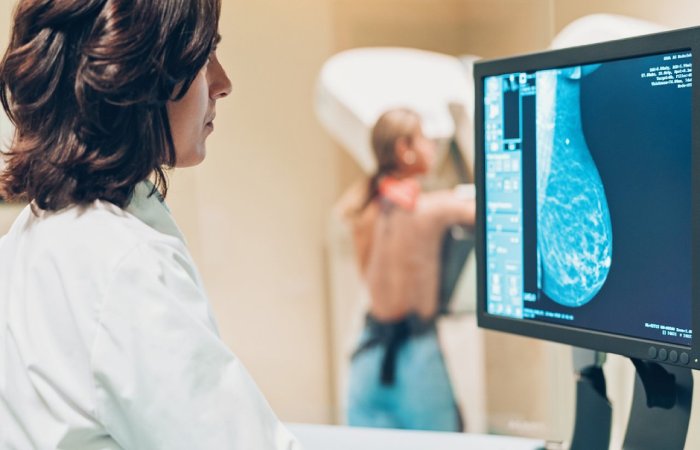Bookmark
Record learning outcomes
Health & NHS news
Follow this topic
700,000 women to take part in AI trial to tackle breast cancer
In Health & NHS news
Follow this topic
Bookmark
Record learning outcomes
Nearly 700,000 women across the country are to be invited to take part in a trial to test how AI tools can be used to catch breast cancer cases earlier.
Details of the trial were announced by the Department of Health and Social Care on World Cancer Day (February 4), as it launched a ‘call for evidence’ to shape a new plan to cut lives lost to cancer.
Some 30 testing sites across the country will be enhanced with digital AI technologies, ready to invite women already booked in for routine screenings on the NHS to take part. The technology will assist radiologists who are screening patients to identify changes in breast tissue that show possible signs of cancer and referred for further investigations if required.
Currently two specialists are needed per mammogram screening. The AI technology enables just one to complete the same mammogram screening process. If the trial is successful, it could free up hundreds of radiologists and other specialists across the country to see more patients, the DHSC hopes.
The EDITH trial (Early Detection using Information Technology in Health) is backed by £11 million of government support via the National Institute for Health and Care Research (NIHR).
Breast cancer is the most common type of cancer in women, with around 55,000 people being diagnosed with the disease every year. Currently, women between the ages of 50 and 71 are invited to be screened every three years to help detect cases. This equates to around 2.1 million breast cancer screens carried out by the programme annually, helping to prevent around 1,300 deaths.
The launch of the trial comes as cancer experts, people living with cancer, and medical professionals are being invited to help shape a new National Cancer Plan. The hope is that the new plan could help transform the way cancer is treated, by fighting the disease on all fronts, through improving research, diagnosis, screening, treatment and prevention.
Due to be published later this year, the National Cancer Plan will set out targeted actions to reduce lives lost, continue improving survival rates, and improve the experience of patients along their cancer journey.
It will also include specific actions for rarer cancers such as those affecting children.

